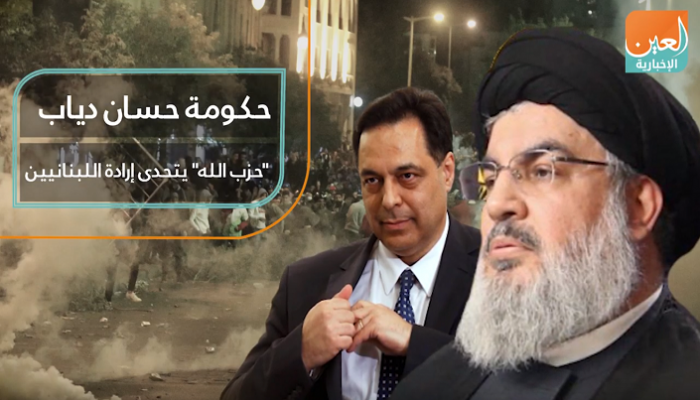By Mahmoud Barakat
Beirut- Incumbent Prime Minister Hassan Diab has been incapable of providing swift solutions to Lebanon’s devastating economic crisis that it has been facing for months now.

As the government is facing accusations of “severe failure” in finding a remedy for the Lebanese economy, questions over whether Diab’s Cabinet should resign are growing every day.
Lebanon is suffering the worst economic crisis since the end of the civil war (1975-1990), which triggered continuous popular protests since Oct. 17, amid demands for economic and political reform.
Lebanese politicians have called for the resignation of the government, in light of the deepening financial collapse in the country, while some request the return of former Prime Minister Saad Hariri.
Unprecedented protests forced the Hariri government to resign in late October and was succeeded by the current government, headed by Diab, on February 11.
Al-Hariri, head of the Future Movement, told reporters last week that “the [political] vacuum is destroying Lebanon and the opportunity to save [the country still] exists and the solution is to change the mechanism and quotas [system] and build the country on new foundations.”
He announced conditions to return to the premiership, adding: “I will not cover anyone close to me to head any government.”
Amid the dissatisfaction with the Diab government, the president of the Free Patriotic Movement, Gebran Bassil, said on Tuesday: “We do not accept this pattern of low productivity in the last stage, and it [the government] should accelerate the implementation of reforms and it may not continue if it fails to do more.”
After a meeting with Hariri, Deputy Speaker of Parliament Elie Ferzli who is close to the Free Patriotic Movement and its allies, Hezbollah and Amal Movement, said that “a review of the formation of the government has become a necessity.”
In an interview with Voice of Lebanon Radio on Saturday, Minister of the Displaced Ghada Chreim said, “Government change is possible at any moment and under any circumstances. The important thing is to find solutions to save the country.”
US and Hezbollah
Speaking to Anadolu Agency, Lebanese journalist Mounir Al-Rabie said: “All data indicates that the date for toppling the government has not come yet.”
He believes that “Hezbollah [a group close to Tehran and the Syrian regime] remains supportive of the government, and will not give up the advantages and control of a government that grants it official, popular, and institutional legitimacy.”
He stressed that Diab “works according to what Hezbollah dictates”, citing that the group’s head Hassan Nasrallah has directed the government to seek economic solutions from Iraq, Iran and China.
The journalist ruled out the possibility of receiving aid from the US, which “demands the formation of an independent government that has nothing to do with political forces.”
“But Hezbollah definitely rejects this matter and in case this government falls, Hezbollah will remain to be a partner in any other coming government,” he said, indicating that such attitude by Hezbollah makes the formation of a new government unlikely to happen soon.
No agreement on alternative
For his part, Qasim Kassir, a political analyst close to Hezbollah, said there is a lot of talk about toppling the government, “but so far it has not been agreed on.”
“The main condition for the government’s resignation is to reach an agreement on the alternative,” Kassir told Anadolu Agency.
He noted that “the pressures are continuing, internally and externally, to topple the government … and the return of Saad Hariri is on the table, but he faces difficult conditions.”
Kassir believes that “the government will remain in place, unless internal and external pressures develop, or an alternative is agreed upon.”
The government has been unable to contain the depreciation of the Lebanese currency, which has lost more than 80% of its value since late 2019, along with high unemployment and inflation.
Lebanon also suffers from a significant shortage of fuel, which led to a significant decrease in electricity production and a rise in commodity prices.
Lebanese protesters are demanding the departure of the political elite, which they hold responsible for “rampant corruption” in state institutions and they see it as the main cause of the financial and economic collapse in Lebanon.
AA

Leave a Reply
You must be logged in to post a comment.